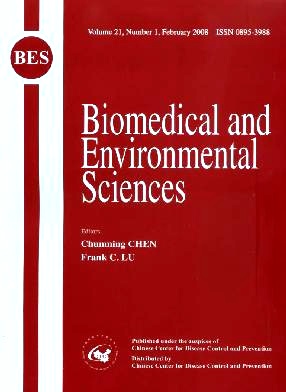In vitro Safety Evaluation and Anticlastogenic Effect of BacoMindTM on Human Lymphocytes
-
Key words:
- BacoMindTM /
- Cytotoxicity:Chromosomal aberration /
- Ames test /
- Micronucleus /
- Clastogens /
- Antioxidant /
- High performance liquid chromatography /
- High performance thin-layer chromatography(HPTLC)
Abstract: Objective BacoMindTM (BM) is a standardized extract of Bacopa monnieri,which belongs to the family Scrophulariaceae and is a creeping annual plant found throughout the Indian subcontinent.It has been used by Ayurvedic medicinal practitioners in India for almost 3000 years and is classified as a medharasayana,a substance which improves memory and intellect.With the widespread traditional use as well as scientific validation of Bacopa monnieri for nootropic activity,a bioactive-rich unique Phvtochemical composition-BacoMindTM was developed from B.monnieri for use as a cognition and memory enhancing agent. The present study aimed to investigate the in vitro toxicity of this formulation of BacoMindTM on human lymphocytes and to rule out its possible contribution to mutagenicity. Methods In the present investigation the active ingredients present in BM were identified and quantified by high performance liquid chromatography (HPLC)and high performance thin-layer chromatography(HPTLC).Antioxidant and anticlastogenic properties of BM were studied in vitro with and without metabolic activation.Doses of BM were chosen on the basis of mitotic index(MI)and cytokinesis-block proliferation index(CBPI).Clastogenicity assays were performed at 31.2 μg/mL,62.5 μg/mL,and 125 μg/mL,while the Salmonella reverse mutation assay (Ames test)was performed at doses of 61.72,185.18,555.55,1666.67,and 5000.00 μg/plate. Results HPLC and HPTLC analysis of BM revealed the presence of bacosidc A3,bacopaside I,bacopaside Ⅱ,iujubogenin isomer of bacopasaponin C,bacosine,luteolin,apigemn,bacosine,and β-sitosterol D glucoside.BM demonstrated significant antioxidant activity.The number of chromosomal aberrations and the frequency of micronuclei induced by BM were not statistically significant up to a dose of 62.5 μg/mL.A subsequent dose of 125 μg/mL prior to metabolic activation induced mild clastogenicity,but it was found to be biologically insignificant as this effect was not seen post metabolic activation.BM also demonstrated a dose-dependent protection against the clasmgens used in this study using the above tests for clastogenicity.Maxilnum protection was observed in presence of metabolic activation.Moreover,BM demonstrated no mutagenic effect on the tested strains,as observed in the Ames test.Conclusion BM protected human lymphoeytes against various clastogens.BM also exhibited high antioxidant activity which might be responsible for the observed protective effects against the clastogens since the used clastogens are known to indace their clastogenic effects via production of oxidative radicals.
| Citation: | DIPANWITA DUTTADEB, PREETI KAPOOR, R.P.DIGHE, R.PADMAJA, M.S.ANAND, P.D'SOUZA, M.DEEPAK, B.MURALI, AAMIT AGARWAL. In vitro Safety Evaluation and Anticlastogenic Effect of BacoMindTM on Human Lymphocytes[J]. Biomedical and Environmental Sciences, 2008, 21(1): 7-23. |







 Quick Links
Quick Links
 DownLoad:
DownLoad: